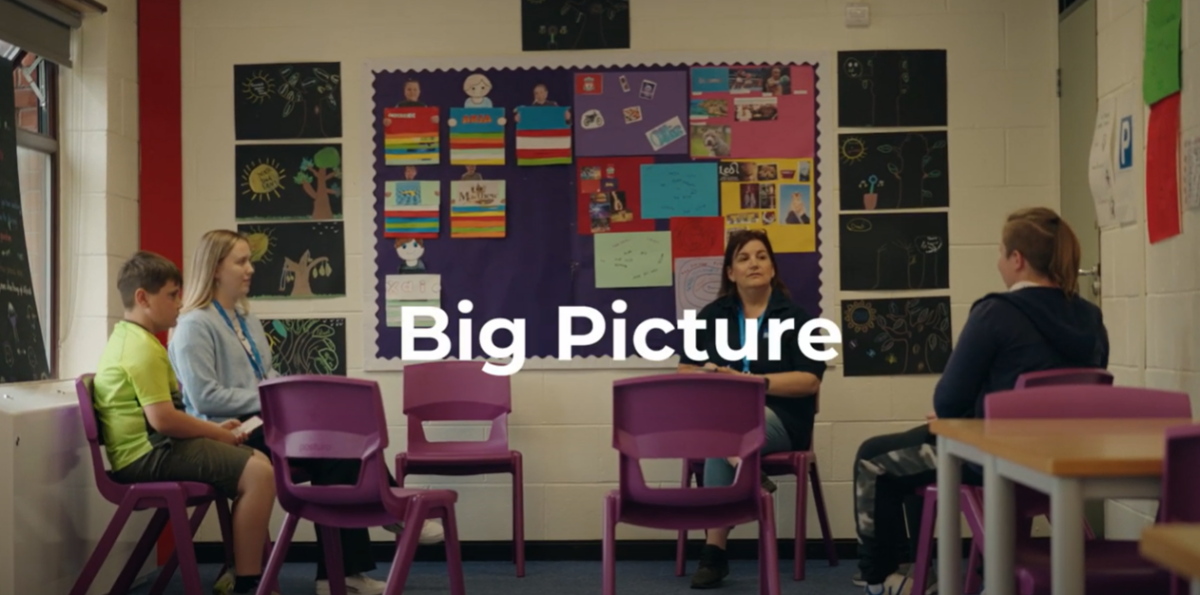£196 Million to Support New Trainee Teachers

- £30,000 tax-free scholarships for mathematics, physics, chemistry and computing trainees
- Builds on additional funding announced by the Prime Minister to lay the groundwork for the Advanced British Standard
- Over 27,000 more teachers in England’s schools since 2010
Teacher recruitment will see a huge boost this academic year with £196 million to attract more teachers across key subjects. This will fund scholarships, bursaries and salary grants to help thousands of candidates through their Initial Teacher Training (ITT).
Scholarships for those training to teach mathematics, physics, chemistry and computing will now be brought up to £30,000 tax-free, in order to attract more talented teachers in these key subjects to support the delivery of the Advanced British Standard (ABS), announced by the Prime Minister last week.
The ABS is a new single qualification for 16- to 19-year-olds that will bring together the best of A Levels and T Levels, giving students the freedom to take a mix of technical and academic subjects, boosting their skillset and giving students more flexibility over their future career options. Students will also spend more time in the classroom, increasing taught hours to a minimum of 1,475 hours over two years.
In his speech, the Prime Minister committed an initial investment of £600 million over two years to lay the groundwork for delivering the Advanced British Standard, which would double the Levelling Up Premium, helping retain talented teachers in priority subjects.
This means that, existing teachers, who are in the first five years of their careers teaching priority subjects in disadvantaged schools will receive £6,000 tax-free per year. This will include for the first time further education colleges and will recognise and reward the valuable jobs that teachers play in our society.
Overall, the next recruitment cycle will see a £15 million increase on the financial support available to trainee teachers compared to the last cycle, which will encourage the brightest and the best into teaching, helping support the delivery of the ABS and beyond.
As part of the increase existing bursaries for biology and design & technology will also be brought up to £25,000 and additional bursaries for subjects that are compulsory to the curriculum have been introduced, including one in music. This means those applying to train to teach music will receive a £10,000 bursary. This brings the total number of eligible subjects available for financial support to 12.
Education Secretary, Gillian Keegan said:
“Last week the Prime Minister set out a new vision for our education system. The new Advanced British Standard will expand the range of what our 16 to 19 year olds learn and finally end the artificial divide between academic and technical education.
“We know teachers will be key to its success – just as they have been to raising standards since 2010. That’s why we need the best and the brightest teaching throughout our schools. These bursaries give trainee teachers even more choice and support to help them start their journey into the classroom.”
Since its launch the Department has made considerable progress delivering its Teacher Recruitment and Retention Strategy to attract, retain and develop the highly skilled teachers needed to inspire the next generation.
Recent data has shown that schools in England now have more teachers than ever before nearly 470,000 teachers in the workforce, a 27,000 increase on 2010.
To help tackle teacher and school leader workload, the Workload Reduction Taskforce has been established, which will help support the Government’s ambition to reduce working hours for teachers and leaders by five hours per week. In addition, we have created 12 Flexible Working Ambassador Multi-Academy Trusts and Schools (FWAMS) this year to support schools with flexible working and have published our Flexible Working Toolkit, which provides resources to help implement practices like job shares, part-time working and ad-hoc flexibility, such as the occasional personal day.
To further attract teachers to the profession, the International Relocation Payment (IRP) pilot will continue for a second year, supporting the highest-quality candidates to teach priority subjects and ensuring that England remains an attractive teaching destination worldwide.
More great teachers in classrooms helps build a world class education system for children and builds on the Government’s work to drive up standards. This follows on from England’s recent success in the Progress in International Reading Literacy Study (PIRLS), which saw it placed 4th in the world for reading among primary school children.
This winter, the Department will publish a strategy update that builds upon its commitment to give every child a world class education delivered by great teachers.
Sector Response
Teach First CEO Russell Hobby said:
“The news of extra funding to attract and retain teachers in shortage subjects could go a long way to supporting the ambition for pupils from all backgrounds to have access to a rigorous academic education, the futures they deserve, whilst recognising the invaluable work of their teachers.”
Ian Hartwright, head of policy at school leaders’ union NAHT, said:
“These proposals follow a well-worn path which has failed to deliver and by focusing so heavily on recruitment the government isn’t doing nearly enough address the similarly concerning crisis in retention of teachers and school leaders.
“It’s like filling a bath without a plug to keep the water in. Almost 44,000 teachers left the profession last year and retention rates for new recruits after their first year teaching actually fell. While the government points to record numbers of teachers in schools, it fails to mention that the number of pupils in state funded schools in England has risen by almost double the rate of the teaching workforce.
“Without a far more ambitious and comprehensive approach from the government, school leaders will continue to struggle to ensure all children have the teachers they need to flourish. It’s vital the government’s refreshed recruitment and retention strategy includes tangible measures to tackle the route causes of this crisis, including not only unsustainable levels of workload, but also the damaging impact of Ofsted inspections and the real-terms pay cuts inflicted on the profession over the last decade.”











Responses